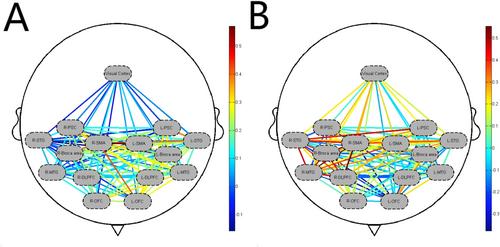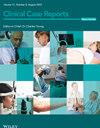高剂量重复经颅磁刺激诱发1例6岁自闭症谱系障碍男童过度大笑
IF 0.6
Q3 MEDICINE, GENERAL & INTERNAL
引用次数: 0
摘要
大剂量经颅磁刺激导致一名6岁自闭症男性过度大笑。我们假设这种现象反映了前额叶去抑制或夸大的情绪反应。本病例强调了在神经调节治疗中遇到此类不良反应时,修改治疗方案的必要性,同时进行精神病学评估、情绪评估和神经生理监测。本文章由计算机程序翻译,如有差异,请以英文原文为准。

A Case Report of High-Dose Repetitive Transcranial Magnetic Stimulation–Induced Excessive Laughing in a 6-Year-Old Boy With Autism Spectrum Disorder
High-dose transcranial magnetic stimulation–induced excessive laughter in a 6-year-old autistic male. We hypothesized that this phenomenon reflected prefrontal disinhibition or exaggerated emotional response. This case emphasizes the necessity for modified treatment protocols with concurrent psychiatric assessment, emotional evaluation, and neurophysiological monitoring when encountering such adverse effects during neuromodulation therapy.
求助全文
通过发布文献求助,成功后即可免费获取论文全文。
去求助
来源期刊

Clinical Case Reports
MEDICINE, GENERAL & INTERNAL-
自引率
14.30%
发文量
1268
审稿时长
13 weeks
期刊介绍:
Clinical Case Reports is different from other case report journals. Our aim is to directly improve global health and increase clinical understanding using case reports to convey important best practice information. We welcome case reports from all areas of Medicine, Nursing, Dentistry, and Veterinary Science and may include: -Any clinical case or procedure which illustrates an important best practice teaching message -Any clinical case or procedure which illustrates the appropriate use of an important clinical guideline or systematic review. As well as: -The management of novel or very uncommon diseases -A common disease presenting in an uncommon way -An uncommon disease masquerading as something more common -Cases which expand understanding of disease pathogenesis -Cases where the teaching point is based on an error -Cases which allow us to re-think established medical lore -Unreported adverse effects of interventions (drug, procedural, or other).
 求助内容:
求助内容: 应助结果提醒方式:
应助结果提醒方式:


